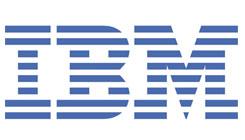 IBM has acquired Trusteer, a firm that specializes in data security and fraud detection, and will build out a software lab in Israel as part of the deal. (Trusteer maintains offices in Israel and Boston.) That lab’s researchers and developers (a combination of IBM and Trusteer employees) will focus on cyber-security, including better ways to lock down mobile devices and applications against external threats. Trusteer delivers many of its security products via the cloud, and those will join IBM’s own Software-as-a-Service (SaaS) portfolio; the longtime argument is that SaaS security software can be updated much more rapidly than traditional software, neutralizing new threats before they become real problems. Trusteer’s software can detect malware and fraudulent activity on both PCs and mobile devices such as smartphones; those capabilities will end up integrated into IBM’s collection of predictive- and investigative-analytics software, which are also used to ferret out fraud within organizations. If Trusteer is the beginning of a larger IBM buying spree, one focusing on cloud-based security, it’s with good reason: Big Blue has made an aggressive push into the cloud space, including a new $1 billion contract with the U.S. Department of the Interior for online services and hosting. IBM’s sales pitch to the federal government (at least according to its public statements) is that its cloud products aren’t just high availability, but also secure against all sorts of threats that keep federal IT administrators awake long into the night. The Department of the Interior will rely on IBM for everything from data storage and secure file transfers to virtual machines and Web hosting. IBM is fighting pretty much every other large IT vendor for the right to huge cloud-computing contracts. For example, the company is locked in a particularly vicious war with Amazon over a deal to provide the CIA with private-cloud infrastructure—a deal that Amazon won, before IBM asked the Government Accountability Office to reopen the contract-approval process. Google, Microsoft, Salesforce, Oracle, and other firms are likewise scrabbling for those cloud dollars in both the private and public sector—raising the pressure on all of them to produce cloud platforms that offer the latest and most innovative in everything from security to user interfaces. In turn, that’s led to a lot of acquisition action, as these big firms buy up startups and smaller companies that specialize in certain aspects of cloud security or support. Hence the Trusteer buy—and many more to come. Image: elmoman/Shutterstock.com
IBM has acquired Trusteer, a firm that specializes in data security and fraud detection, and will build out a software lab in Israel as part of the deal. (Trusteer maintains offices in Israel and Boston.) That lab’s researchers and developers (a combination of IBM and Trusteer employees) will focus on cyber-security, including better ways to lock down mobile devices and applications against external threats. Trusteer delivers many of its security products via the cloud, and those will join IBM’s own Software-as-a-Service (SaaS) portfolio; the longtime argument is that SaaS security software can be updated much more rapidly than traditional software, neutralizing new threats before they become real problems. Trusteer’s software can detect malware and fraudulent activity on both PCs and mobile devices such as smartphones; those capabilities will end up integrated into IBM’s collection of predictive- and investigative-analytics software, which are also used to ferret out fraud within organizations. If Trusteer is the beginning of a larger IBM buying spree, one focusing on cloud-based security, it’s with good reason: Big Blue has made an aggressive push into the cloud space, including a new $1 billion contract with the U.S. Department of the Interior for online services and hosting. IBM’s sales pitch to the federal government (at least according to its public statements) is that its cloud products aren’t just high availability, but also secure against all sorts of threats that keep federal IT administrators awake long into the night. The Department of the Interior will rely on IBM for everything from data storage and secure file transfers to virtual machines and Web hosting. IBM is fighting pretty much every other large IT vendor for the right to huge cloud-computing contracts. For example, the company is locked in a particularly vicious war with Amazon over a deal to provide the CIA with private-cloud infrastructure—a deal that Amazon won, before IBM asked the Government Accountability Office to reopen the contract-approval process. Google, Microsoft, Salesforce, Oracle, and other firms are likewise scrabbling for those cloud dollars in both the private and public sector—raising the pressure on all of them to produce cloud platforms that offer the latest and most innovative in everything from security to user interfaces. In turn, that’s led to a lot of acquisition action, as these big firms buy up startups and smaller companies that specialize in certain aspects of cloud security or support. Hence the Trusteer buy—and many more to come. Image: elmoman/Shutterstock.com IBM Buys Trusteer as Part of Cloud-Data Strategy
 IBM has acquired Trusteer, a firm that specializes in data security and fraud detection, and will build out a software lab in Israel as part of the deal. (Trusteer maintains offices in Israel and Boston.) That lab’s researchers and developers (a combination of IBM and Trusteer employees) will focus on cyber-security, including better ways to lock down mobile devices and applications against external threats. Trusteer delivers many of its security products via the cloud, and those will join IBM’s own Software-as-a-Service (SaaS) portfolio; the longtime argument is that SaaS security software can be updated much more rapidly than traditional software, neutralizing new threats before they become real problems. Trusteer’s software can detect malware and fraudulent activity on both PCs and mobile devices such as smartphones; those capabilities will end up integrated into IBM’s collection of predictive- and investigative-analytics software, which are also used to ferret out fraud within organizations. If Trusteer is the beginning of a larger IBM buying spree, one focusing on cloud-based security, it’s with good reason: Big Blue has made an aggressive push into the cloud space, including a new $1 billion contract with the U.S. Department of the Interior for online services and hosting. IBM’s sales pitch to the federal government (at least according to its public statements) is that its cloud products aren’t just high availability, but also secure against all sorts of threats that keep federal IT administrators awake long into the night. The Department of the Interior will rely on IBM for everything from data storage and secure file transfers to virtual machines and Web hosting. IBM is fighting pretty much every other large IT vendor for the right to huge cloud-computing contracts. For example, the company is locked in a particularly vicious war with Amazon over a deal to provide the CIA with private-cloud infrastructure—a deal that Amazon won, before IBM asked the Government Accountability Office to reopen the contract-approval process. Google, Microsoft, Salesforce, Oracle, and other firms are likewise scrabbling for those cloud dollars in both the private and public sector—raising the pressure on all of them to produce cloud platforms that offer the latest and most innovative in everything from security to user interfaces. In turn, that’s led to a lot of acquisition action, as these big firms buy up startups and smaller companies that specialize in certain aspects of cloud security or support. Hence the Trusteer buy—and many more to come. Image: elmoman/Shutterstock.com
IBM has acquired Trusteer, a firm that specializes in data security and fraud detection, and will build out a software lab in Israel as part of the deal. (Trusteer maintains offices in Israel and Boston.) That lab’s researchers and developers (a combination of IBM and Trusteer employees) will focus on cyber-security, including better ways to lock down mobile devices and applications against external threats. Trusteer delivers many of its security products via the cloud, and those will join IBM’s own Software-as-a-Service (SaaS) portfolio; the longtime argument is that SaaS security software can be updated much more rapidly than traditional software, neutralizing new threats before they become real problems. Trusteer’s software can detect malware and fraudulent activity on both PCs and mobile devices such as smartphones; those capabilities will end up integrated into IBM’s collection of predictive- and investigative-analytics software, which are also used to ferret out fraud within organizations. If Trusteer is the beginning of a larger IBM buying spree, one focusing on cloud-based security, it’s with good reason: Big Blue has made an aggressive push into the cloud space, including a new $1 billion contract with the U.S. Department of the Interior for online services and hosting. IBM’s sales pitch to the federal government (at least according to its public statements) is that its cloud products aren’t just high availability, but also secure against all sorts of threats that keep federal IT administrators awake long into the night. The Department of the Interior will rely on IBM for everything from data storage and secure file transfers to virtual machines and Web hosting. IBM is fighting pretty much every other large IT vendor for the right to huge cloud-computing contracts. For example, the company is locked in a particularly vicious war with Amazon over a deal to provide the CIA with private-cloud infrastructure—a deal that Amazon won, before IBM asked the Government Accountability Office to reopen the contract-approval process. Google, Microsoft, Salesforce, Oracle, and other firms are likewise scrabbling for those cloud dollars in both the private and public sector—raising the pressure on all of them to produce cloud platforms that offer the latest and most innovative in everything from security to user interfaces. In turn, that’s led to a lot of acquisition action, as these big firms buy up startups and smaller companies that specialize in certain aspects of cloud security or support. Hence the Trusteer buy—and many more to come. Image: elmoman/Shutterstock.com 
